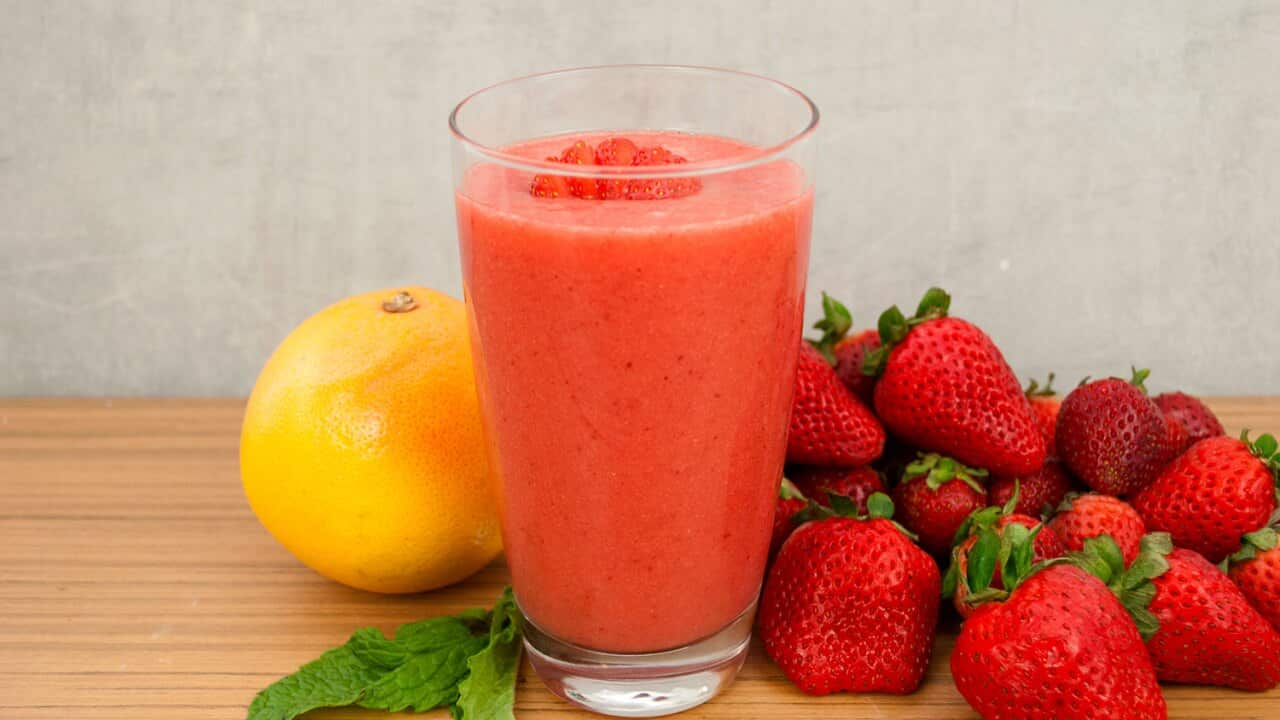It's a hot and humid summer day in Heian-era Japan (794-1185 AD); a noble, steaming under his multi-layered aristocratic silk robes, sips a cup of amazake (sweet sake) to alleviate his natsubare (summer fatigue) – or so the story might go.
Amazake, a Japanese fermented drink of rice, koji mold (aspergillus oryzae) and water, was a summertime favourite in the Heian-era Imperial Court. Although, it's origins are thought to date back even hundreds of years earlier to the Kofun period (300-538 AD).
TREATS OF JAPAN

Philosophy in a teacup: learnings from Japanese tea ceremony
What exactly is it?
Amazake is an ancient Japanese fermented rice drink. Even though it translates to "sweet sake", it's a non-alcoholic beverage.
"Amazake is on the way to making sake," says Kozue Hamasaki, a representative of Niigata-based amazake maker, .
The company was launched by renowned sake brewery Hakkaisan in 2009 to explore the potential of other koji-based products. "It's produced by water, rice and koji saccharifying and fermenting. It's just missing the part where the sugars turn into alcohol." The result is a creamy beverage with a porridge-Iike consistency, varying in thickness or smoothness depending on the brewing process. It's funky and, true to its name, sweet. It's also arguably one of the world's first energy drinks, packed with a staggering amount of nutrients plus glucose – the reason it's colloquially called "drinkable IV" in Japan.
The result is a creamy beverage with a porridge-Iike consistency, varying in thickness or smoothness depending on the brewing process. It's funky and, true to its name, sweet. It's also arguably one of the world's first energy drinks, packed with a staggering amount of nutrients plus glucose – the reason it's colloquially called "drinkable IV" in Japan.

Amazake is typically drunk cold in summer and hot in winter, sprinkled with a little powdered ginger Source: Jessica Thompson
There is a second type of Amazake, but it's less common and could be made at home as a short-cut. But while it contains some nutrition benefits, it's not nearly the same as the fermented rice koji-based brew, and is mildly alcoholic.
WAYS WITH RICE

Don’t love sake? This might change your mind
A revival
Although the ancient drink fell out of fashion for several decades, recent years in Japan have seen a resurgence in its popularity. Amazake sales in Japan grew 187 per cent from 2016-2017, and it's now found at grocery stores, health-food stores, liquor stores, specialty fermentation stores and (where else could be the benchmark for what's on-trend?) convenience stores.
In Japan, it's become particularly popular with women in their 20s-40s as a health and beauty product.
"In Japan, it's become particularly popular with women in their 20s-40s as a health and beauty product," says Hiroshi Fuji, an amazake expert with a Master's degree from the Tokyo University of Agriculture's Department of Fermentation Science and Technology, who has worked as a lactic acid researcher and amazake consultant to major brands.

Bottles of amazake from Sennen Kojiya, the amazake brewery established by renowned sake brewery, Hakkaisan Source: Jessica Thompson
What is so special about it?
Amazake's impressive list of benefit claims includes promoting beautiful skin and healthy hair, aids weight loss, relieves fatigue, increases concentration, relieving constipation, aiding good sleep and more.
It's a boon to the digestive system, containing the digestive enzymes amylase and protease that break down carbohydrates and proteins and convert them into energy, plus vitamin B2 which helps the body break down proteins and fat.
"Amazake has oligosaccharides that help improve intestinal bacteria. I feel my stomach rejoice when I drink it," says Hiroshi, who has tasted over 420 types of amazake from across the country for his , and has been brewing it himself since the age of four. The drink is full of ingredients that are said to be beneficial for the skin, hair and nails, like , the amino acid and .
The drink is full of ingredients that are said to be beneficial for the skin, hair and nails, like , the amino acid and .

A refreshing blend of equal parts amazake and acerola cherry juice Source: Jessica Thompson
In addition, it's got vitamins B6, B5 and GABA, which are believed to calm and stabilise the nervous system and help improve mood. It also contains glucose for energy.
Get on board
Despite this impressive resume of benefits and a wide range of applications, and the increase of gut-health consciousness and popularity brought about by amazake is rarely found outside of Japan.
"It's still really quite unknown in Australia. I think if you were to ask the majority of Australians, most people would never have heard of it. I think there's huge potential," says Adam James, who set up his fermentary six years ago in Hobart, and learned to make amazake in Japan.
"When I first tried amazake, I was initially taken aback by the sweetness, but over time have come to really enjoy it."
FOR THOSE WITH A SWEET TOOTH!

Japan's traditional sweets are (almost) too pretty to eat
While it's less available in Australia, you can find often find amazake at Japanese grocers, health food stores, and online. sells a brown-rice amazake made in Japan, and in Sydney started producing amazake locally in 2018.
How to drink it
Hiroshi recommends drinking "chilled sweet sake in summer, to prevent summer bloating", and adding a pinch of powdered ginger to a warm amazake in winter "to heat the body”.
But aside from drinking it straight, amazake's natural sweetness makes it highly versatile, and can be used in blended drinks and smoothies, mixed with yoghurt, used in frozen desserts, added in place of mirin in dressings, and a sugar substitute for baking.
BOOST YOUR JUICE

Pink lady smoothie
"I've made amazake ice-cream for a pop up," says James.
The menu at Sennen Kojiya's Tokyo stores adapts the brew for different seasons – amazake with tomato juice, grapefruit juice or acerola cherry juice in summer; warmed with hojicha and milk, matcha, or cocoa in winter.
"It mixes well with sour or bitter flavours," says Hamasaki.
As Hiroshi says, "the world of amazake is wide". Here are a couple of suggestions to dip your toe in:
Quick amazake cucumber pickles
Finely sliced one cucumber, sprinkle it with salt and place it in a colander for 10 minutes. In a separate bowl, whisk together one tbsp each of ponzu and undiluted amazake. Squeeze the excess liquid out of the cucumber and add to the amazake mixture with one tsp white sesame seeds. Toss to combine and served chilled. 

Cucumber with amazake and ponzu dressing Source: Jessica Thompson
Amazake lemon drink
Mix 150 ml of amazake with 20-30 ml of fresh lemon juice and pour into a glass of ice to serve. Find at the Hobart Farmers Market on weekends.
Find at the Hobart Farmers Market on weekends.

Chilled lemon-infused amazake. Source: Jessica Thompson
Photographs by Jessica Thompson.
ALL FOOD JAPAN

Japan's hottest dessert craze lands in Sydney








